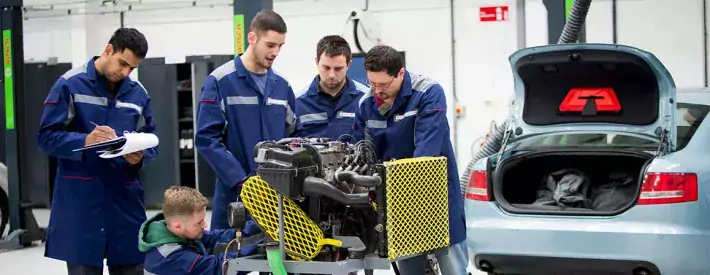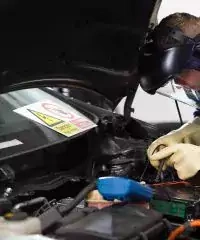Skills England Report: IMI Response

IMI welcomes Skills England’s call for reform – but urges greater focus on the automotive sector
The Institute of the Motor Industry (IMI) welcomes Skills England’s latest publication, Sector Evidence to Support the Growth and Skills Offer, and the recognition that the UK’s skills system must evolve to meet the scale and speed of economic and technological change.
Hayley Pells, Government Affairs Lead at the IMI said: "We support the report’s focus on making the apprenticeship system more agile, responsive, and inclusive. The urgency couldn’t be clearer: our latest Labour Market and Vacancy Tracker shows over 17,000 unfilled roles in automotive, with technical and specialist jobs hardest to recruit. Technician postings jumped 4% last quarter, and salaries are up 13% in just two years, proof of a fast-moving sector battling a serious skills shortfall.
“However, the Skills England evidence base, while broad, under-represents the automotive aftermarket and technician workforce. Despite contributing significantly to employment, net zero ambitions, and clean growth, this sector is often overlooked in wider skills analysis. This risks policy decisions that ignore the downstream skills demands beyond manufacturing gates.”
The IMI therefore urges Skills England and government to:
• Ensure the forthcoming Industrial Strategy and growth and skills offer explicitly include the whole automotive ecosystem not just automotive manufacturing.
• Prioritise the creation of shorter, stackable apprenticeship pathways and bolt-on training modules that reflect real-world training needs in areas like battery safety, high voltage systems, and autonomous technologies. The current rigidity of apprenticeship standards fails to support the fast-moving skills needs of EV and ADAS repair.
• Expand the use of flexible delivery models, such as the IMI and WMG’s Further Education Lecturer Reservists (FELR) proposal, which would allow professionals to deliver technical education without leaving industry, helping to bridge the skills educator shortage and futureproof the sector’s pipeline.
• Address the disproportionate barriers faced by SMEs, and who struggle with the complexity of apprenticeship funding, administrative burden, and the inflexibility of programme duration.
• Recognise the urgent shortfall in ADAS-qualified technicians: only 2% of the current workforce holds the required credentials, while ADAS-equipped vehicles already make up 1 in 5 on UK roads. IMI forecasts indicate that we will need 130,000 qualified technicians by 2032—yet at current rates, we are not on track.
“Skills England is right to call for a system that meets sector-specific skills demands from Level 2 to Level 6+”, added Hayley Pells. “In automotive, Level 3 remains foundational, especially for hands-on skilled trades. Yet our sector also needs Level 4/5 technical qualifications, reskilling pathways, and accelerated routes to competence. A single route or reform will not suffice.
“Finally, we urge Skills England to provide clearer visibility of how it will engage with sector-specific experts, including Professional Bodies like the IMI, in future LSIP development, employer evidence gathering, and the co-design of sector plans under the new Industrial Strategy. We are ready to support Skills England in building a responsive, inclusive, and future-ready skills system - but that system must recognise and reflect the entire automotive landscape, not just its most visible parts.”





